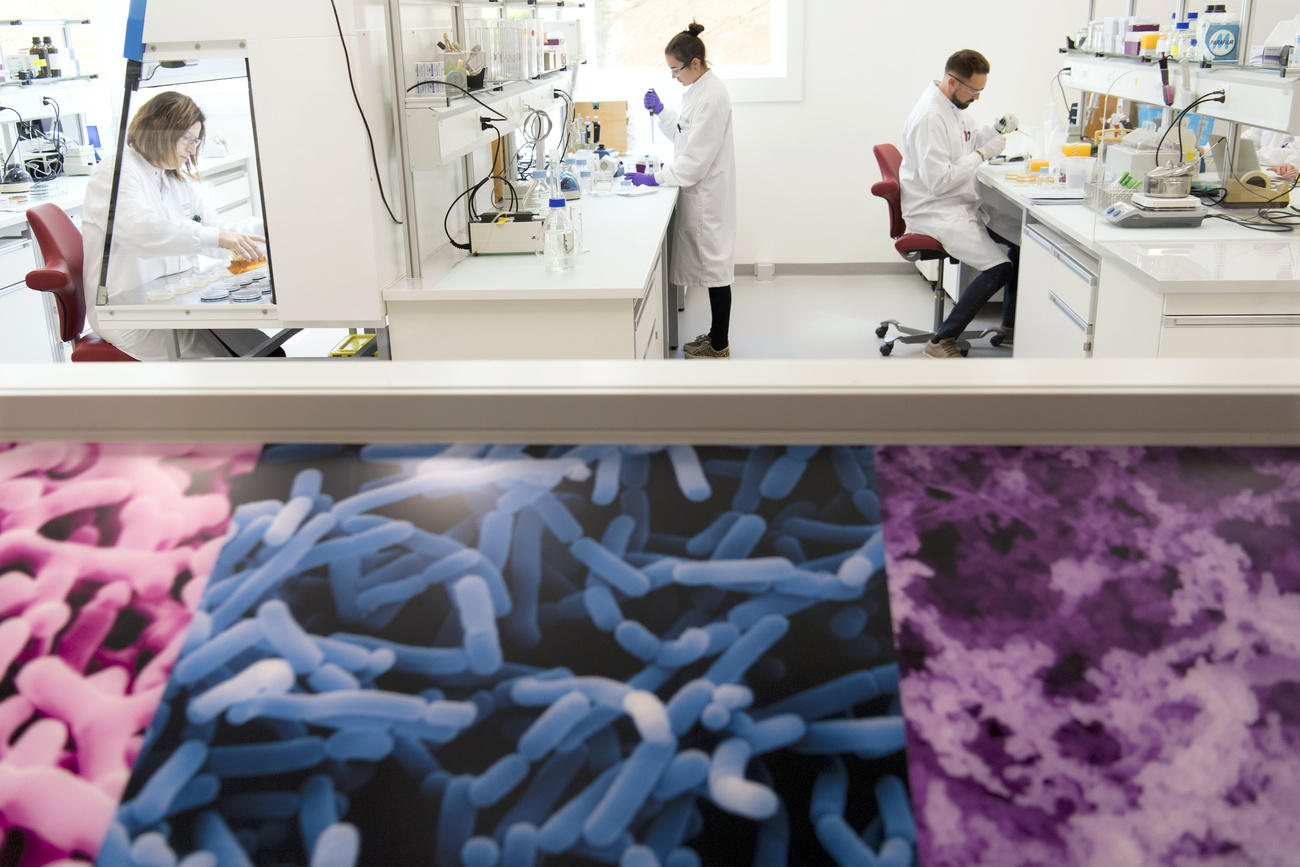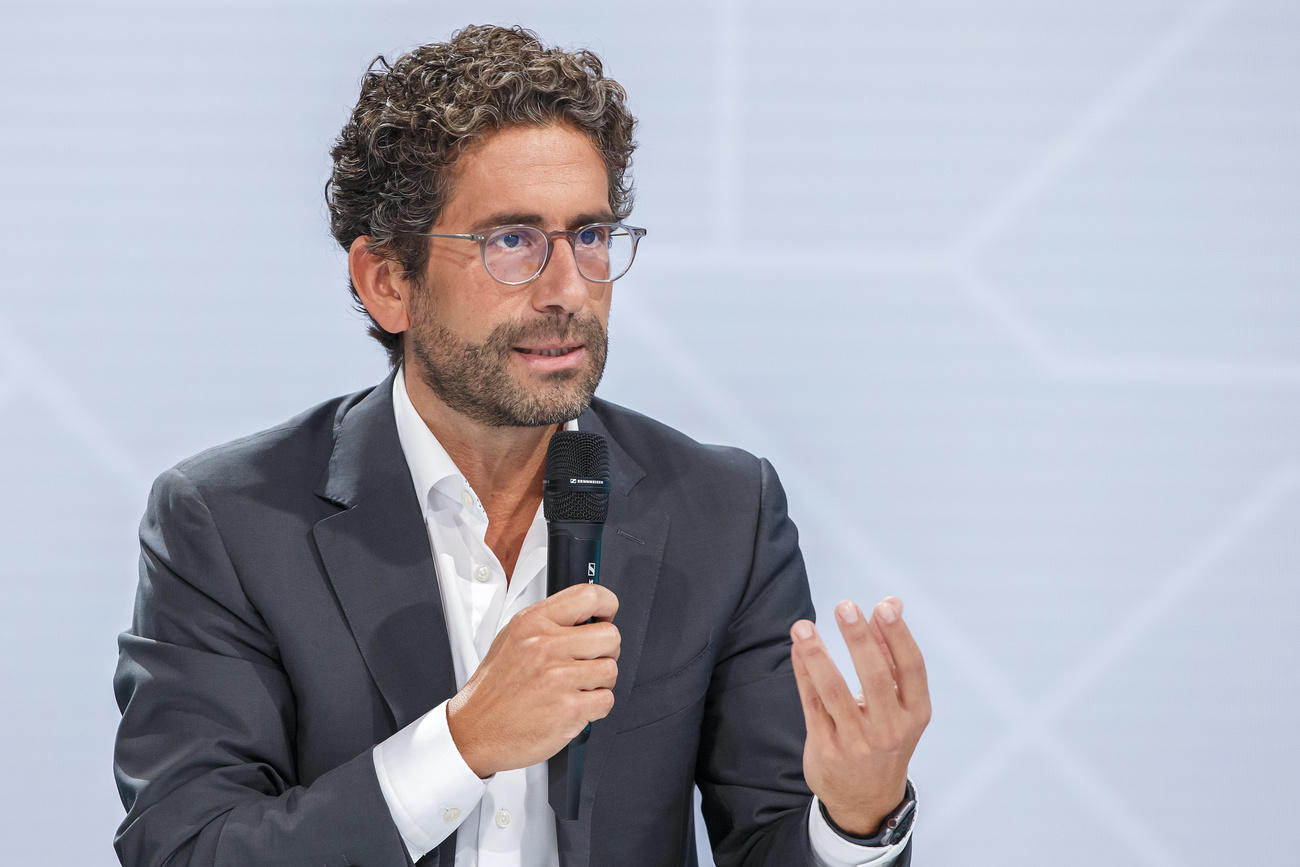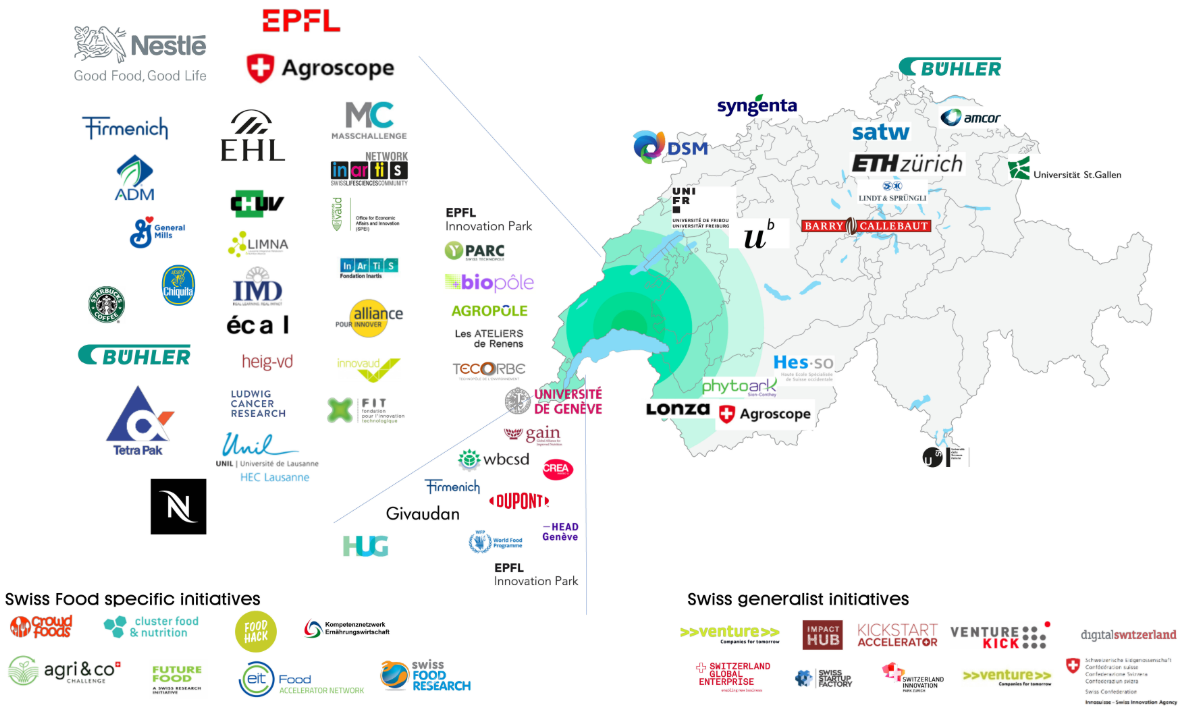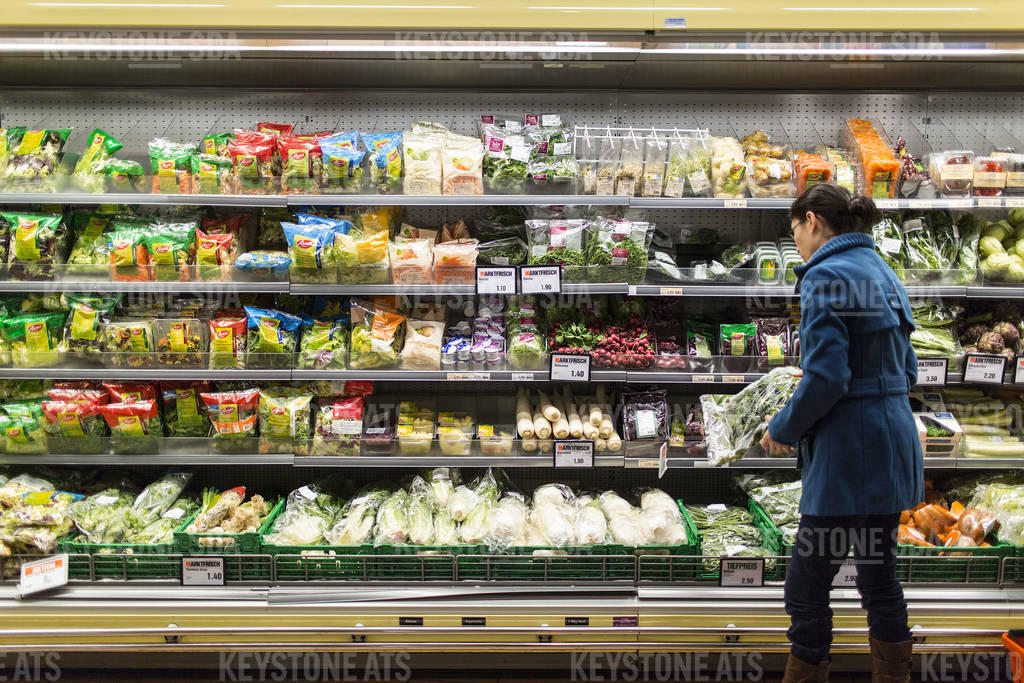Swiss set sights on becoming hub for food and nutrition innovation

Big players across industry and academia have come together to boost Switzerland’s reputation as a powerhouse for food and nutrition innovation.
Feeding 9 billion people with healthy and sustainable food: that’s the colossal challenge for humanity in the next few decades. With its 8 million inhabitants and an agriculture sector that occupies less than 1% of Gross Domestic Product, Switzerland looks like a dwarf in the face of big agriculture players like the United States, China, Brazil and Germany.

However, it has considerable assets on its side in the field of agri-food technologies. “Switzerland is home to a unique innovation ecosystem in food and nutrition,” argues Fathi Derder, the coordinator of the Swiss Food & Nutrition ValleyExternal link, a project launched on the occasion of the most recent World Economic Forum. The project is backed by Nestlé, canton Vaud in western Switzerland, the School of Hospitality and the Federal Institute of Technology in Lausanne (EPFL).
Attracting the best talent
In addition to big well-known agribusiness multinationals (Nestlé, Syngenta, Firmenich, Givaudan, etc.), Switzerland has also seen the emergence of dozens of start-ups in fields like precision agriculture (drones, robots, etc), new packaging techniques and vegetable protein development.
This flourishing private sector has the advantage of drawing on a wide-range of expertise from the federal institutes of technology but also other universities and government-supported agronomy research centres.
These different groups have been collaborating for many years. “But in the face of international competition, especially from North America and Asia, Switzerland must reinforce its leadership position particularly so it can attract the best talent,” underlines Derder.
>>Some of the big players in the food and nutrition ecosystem in Switzerland:

Common interests
While big heavyweights like Nestlé and EPFL are the driving forces, the initiative is also being embraced by smaller players in the “Swiss Made” industry. “The creation of the Swiss Food and Nutrition Valley will help reinforce the entire agri-food business in Switzerland,” says Olga Dubey, founder of the start-up AgroSustainExternal link, specialised in the natural treatment of gray mould present in numerous fruit and vegetables.
Today, food production is responsible for around 30% of global greenhouse gas emissions. Bringing effective and sustainable solutions to reduce the environmental impact requires “collaboration between well-established companies in the agri-business field with highly innovative, young companies,” argues Dubey.
Despite sometimes diverging interests, all the actors in the field are interested in advancing the sector, says Derder. Cantons, start-ups, universities and organisations are invited to join the association that will be set up in the coming weeks.
In partnership with the Swiss government and Presence SwitzerlandExternal link, which is responsible for promoting Switzerland’s image abroad, the project will be holding a series of events this year. “This international presence is essential. The advantage is we don’t need to toot our own horn as no other region in the world has such a density of excellence in the field,” explains Derder.
Not inclusive enough?
An attractive concept, largely inspired by the model of “Silicon Valley” which has a good chance of being a success, according to Hugues Jeannerat, a professor specializing in innovation at the University of Neuchâtel. “It’s a relevant and fashionable idea but it is not particularly revolutionary. It is a well-known recipe, which has also been applied, for example, in the medical sector with the promotion of a Swiss “Health Valley”.
While Jeannerat welcomes the project, he regrets that it is largely centered around technological solutions. “The real food and nutrition challenges go far beyond the development of new products and production processes. Supply chains, consumption practices and lifestyles must also be reinvented,” he argues.
The sociologist and innovation expert hopes that the project will also create a dedicated space for consumers, farmers and civil society to be a part of the innovation ecosystem. “It would help address the challenges more fully by thinking about change in concert with the economy and society.”
You can contact the author of this article on Twitter: @samueljaberg
Adapted from French by Jessica Davis Plüss

In compliance with the JTI standards
More: SWI swissinfo.ch certified by the Journalism Trust Initiative












You can find an overview of ongoing debates with our journalists here . Please join us!
If you want to start a conversation about a topic raised in this article or want to report factual errors, email us at english@swissinfo.ch.